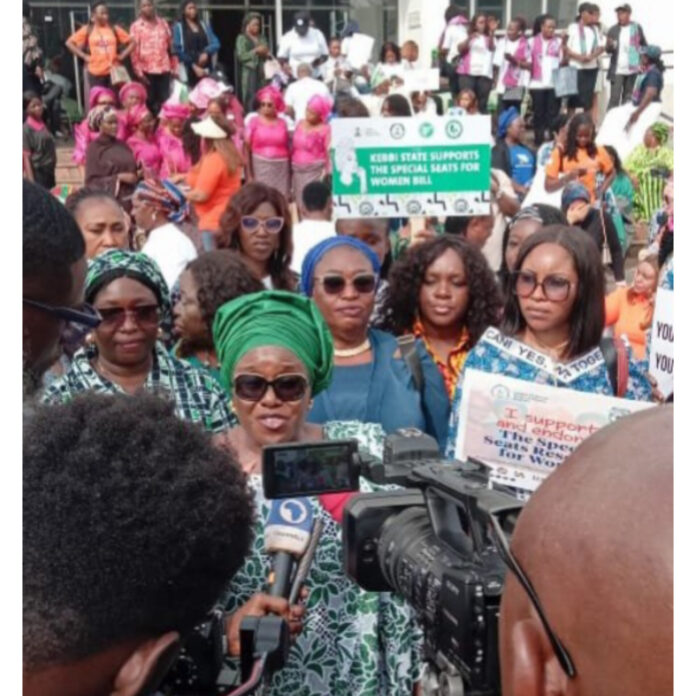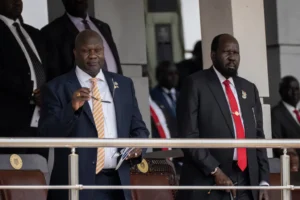Hundreds of women from across Nigeria converged in Abuja on Monday in a mass march to demand the passage of the Reserved Seats for Women Bill and the Independent Candidacy Bill currently under consideration at the National Assembly.
The women, drawn from all 36 states and the Federal Capital Territory, began their procession at the Maryam Babangida National Centre for Women Development and moved to the Transcorp Hilton, where a public hearing on the constitutional amendment bills was taking place.
Organisers said more than 750 women participated in the demonstration, which was marked by chants, placards, and a caravan of buses and trucks carrying participants through the city.
Nigeria currently has one of the lowest levels of female representation in Africa, with just four female senators out of 109 and 16 women in the 360-member House of Representatives. The “Special Seats Bill” seeks to amend the 1999 Constitution to guarantee one additional female senator and two female members of the House of Representatives from each state and the FCT, along with reserved slots in state assemblies.
Presenting more than one million signatures in support of the bill, Irene Awunah-Ikyegh, President of the League of Women Voters of Nigeria, said the initiative was “not just about numbers but about securing women’s rightful place in governance.”
Women leaders and civil society advocates who took part in the march argued that the reform would help overcome long-standing barriers—including financial constraints, cultural expectations, and entrenched political structures—that have kept women out of politics.
The Independent Candidacy Bill, which was also discussed at the hearing, would allow qualified individuals to contest elections without party affiliation, a move supporters say would broaden participation for women and youth.
Deputy Speaker of the House of Representatives, Benjamin Kalu, described the proposal as a “transformative step designed to guarantee gender balance and promote inclusive governance.”
Women’s groups also pointed to examples from across Africa where quota systems have boosted women’s representation, including Rwanda, Uganda, and Senegal.
Esther Eghobamien-Mshelia, Chief Executive of Women Arise Development and Humanitarian Initiative (WADHI),
said: “Reserved seats for women are not a privilege but a corrective measure. We must create space for women to contribute fully to governance and national development.”
Constitutional amendments require approval by two-thirds of the National Assembly and at least 24 state legislatures, a hurdle that has stalled previous attempts. However, Monday’s turnout underscored women’s determination to see the reforms passed.
“This Bill is about fairness, inclusion, and ensuring that the voices of Nigerian women are heard where decisions are made,” said Toun Okewale-Sonaiya, Chief Executive of Women Radio.












